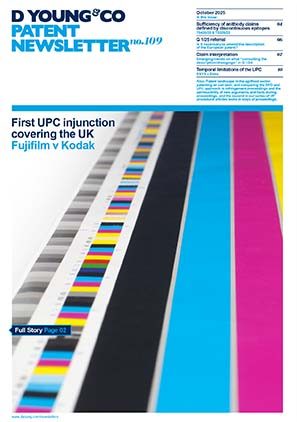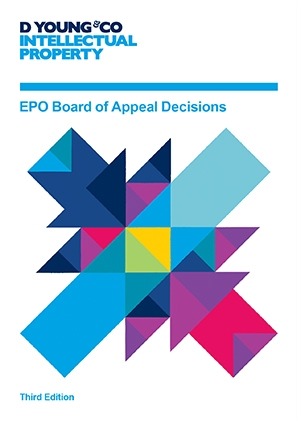Optis v Apple: strike out application refused
In one of a series of standard essential patent (SEP) and fair reasonable and non-discriminatory (FRAND) cases brought before the Patents Court of England & Wales since the decision in Unwired Planet v Huawei (which remains subject to an appeal to the Supreme Court), Optis has commenced patent infringement proceedings against Apple (in particular, Apple Inc., Apple Retail UK Ltd, and Apple Distribution International). In an application for strike out, Apple sought to show that the action was an abuse of a dominant position and fell foul of competition law.
Background
Article 102 of the Treaty of the Functioning of the European Union states that: “Any abuse by one or more undertakings of a dominant position within the internal market or in a substantial part of it shall be prohibited as incompatible with the internal market in so far as it may affect trade between member states.”
In Huawei v ZTE, the Court of Justice of the European Union (CJEU) held that, in the context of standard essential patents (SEPs), the following steps could be taken by the SEP owner to avoid an abuse of any dominant position:
- The SEP owner should notify the implementer of the infringement by identifying its SEPs and specifying the way in which they have been infringed;
- After the implementer had indicated its willingness to conclude a licence on FRAND terms, the SEP owner should make a written offer of a licence on FRAND terms (specifying the amount and method of calculation of the royalties);
- The implementer should respond to the offer. Here the court emphasised that the implementer should "diligently" respond to the offer, in accordance with "recognised commercial practices in the field and in good faith" (which implies that there should not be any ‘delaying tactics’);
- Should the implementer not accept the offer, it should "promptly" make a counter-offer; and
- Crucially, if the implementer was using the teachings of the SEP, it should provide "appropriate security, in accordance with recognised commercial practices in the field, for example by providing a bank guarantee or by placing the amounts necessary on deposit".
Application
Apple argued that Optis only performed the first step in Huawei v ZTE in relation to Apple Inc (not Apple Retail UK Ltd and Apple Distribution International). As this step was held to be mandatory by the Court of Appeal, Apple argued that it followed that there was an abuse. The court held that Apple may be correct, but the issue was not capable of being summarily assessed. The judge, Mr Justice Nugee, reasoned that:
“It does seem to me that there is a reasonable prospect, at the very lowest, of the claimants persuading the court at trial that it was sufficient for them to comply with the requirements laid down by the CJEU to have spent, on the evidence, some two years negotiating with Apple Inc. on the understanding, on both sides, that the negotiations with Apple Inc. were not simply for a licence to be taken by Apple Inc. for itself, but were for a licence to be taken by Apple Inc. for all the Apple companies involved in relevant sales, whether physical sales in retail shops by the UK company, or sales through the website by the Irish company [Apple Distribution International].”
In addition, Apple relied on the terms of the licence which Optis offered to Apple, which were annexed to the particulars of claim. This licence took the form of that settled by thePatents Court of England & Wales in Unwired Planet v Huawei, varied to reflect the specific circumstances. Apple argued that these terms were unfair. In particular, Apple argued that the agreement contained two definitions “licensed patents” and “patents” which, together, created an onerous obligation. The term "licensed patents" was defined to include all patents claimed, declared or otherwise asserted by the owner to be (effectively) essential. The term "patents" was defined to include claims of licensable patent applications. Apple argued that the effect of this was that Optis only had to acquire patent applications and assert them to be essential for Apple to be in a position where it had to pay back royalties.
Optis argued that it did not necessarily follow from ownership of a SEP that Optis was in a dominant position. Rather, a factual investigation was necessary to determine this (which could not be summarily conducted). It also argued that, in any event, there needed to be an assessment of whether there was an abuse of any dominant position. Relative to this assessment was the manner in which the Patents Court structured its proceedings, namely that a patent has to be found valid, essential and infringed and the terms of a FRAND licence determined before there is the prospect of an injunction being granted.
The judge, Mr Justice Nugee, agreed reasoning: “In circumstances where the outcome of any trial, if the claimant is entirely successful, will be that the defendant will be offered an opportunity to take a licence on terms that, by definition, the court has found to be fair and reasonable and non-discriminatory, and where the court will only be willing to grant an injunction in circumstances where the defendant, having been given such an opportunity, has chosen not to take such a licence, I find it difficult to say at this stage that that outcome is necessarily something which makes the launching of these proceedings, even if accompanied by an offer which was not fair and reasonable, an abuse of process such as to give the defendants the ability not only to argue that other terms should be held to be FRAND, but to say that the action as a whole was an abuse and should be struck out, or that there was a defence to the claim for an injunction.”
It followed that the application for strike out failed.
Comment
Increasingly implementers are seeking to extricate themselves from the jurisdiction of the English courts to avoid a determination of a FRAND licence. Broadly, the attacks to date have been threefold:
- lack of jurisdiction per se;
- non-compliance with the Huawei v ZTE steps; and
- submitting to an injunction (and foregoing a FRAND licence).
With the exception of Apple v Qualcomm and TQ Delta v ZyXEL, these applications have proved unsuccessful. This suggests that the Patents Court is positioned and committed to be the global arbiter of FRAND disputes.
Case: Optis v Apple 2019 EWHC 3538 (Pat)
[2019] EWHC 3538 (Pat)
Optis Cellular Technology LLC & Ors v Apple Retail UK Ltd & Ors [2019] EWHC 3538 (Pat) (17 December 2019).
Full decision (Bailii)
